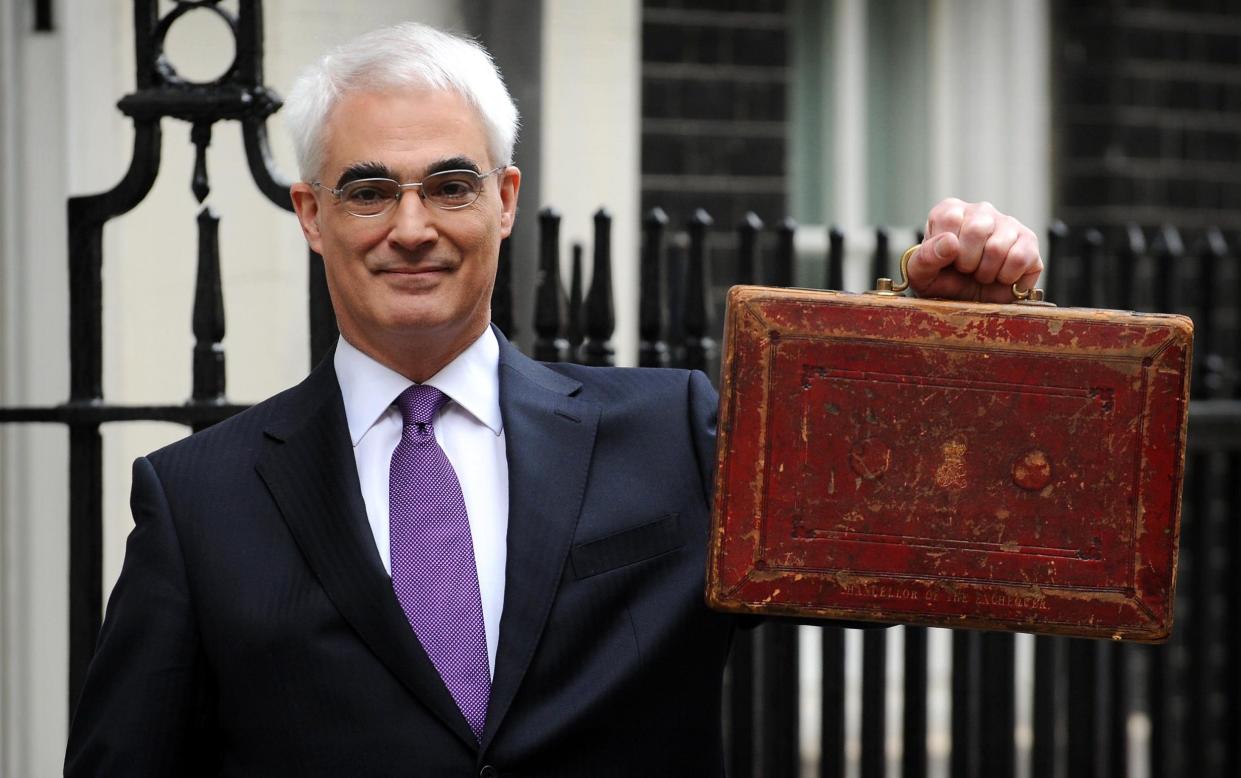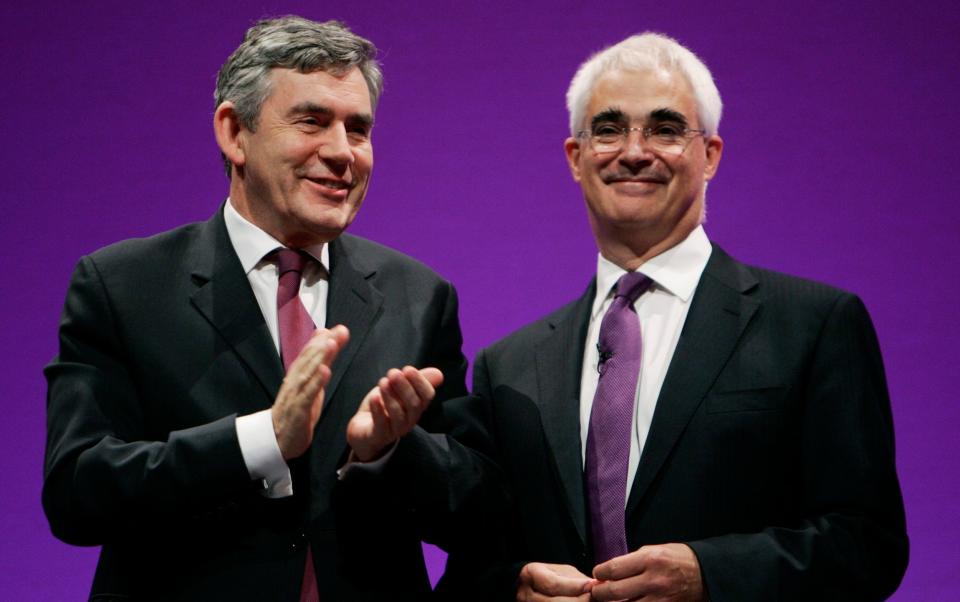Alistair Darling was kind and steadying amid the turmoil of the financial crisis

- Oops!Something went wrong.Please try again later.
- Oops!Something went wrong.Please try again later.
Alistair Darling, who has died aged 70, was by far the nicest and seemingly decent of the New Labour ministers who swept to power in Tony Blair’s landslide 1997 election victory.
Over the years, I’ve known and reported on many chancellors and, alongside Ken Clarke, he’s still my favourite – a kind, thoughtful and steadying influence amid the turmoil of the global financial crisis for which the country still has much to thank him for. Outcomes might have been much worse without him.
The first time I came across Alistair Darling was at the start of New Labour’s so-called “prawn cocktail” offensive, in which through a series of lunches and dinners, its leading lights attempted to reassure the business community that it no longer had anything to fear from Labour.
At one of these events, I asked him what plans he had for the City, assuming that Labour remained as hostile as ever to its presence and influence. Not at all, he disarmingly replied. The City was a great economic asset to Britain, which needed to be constantly nurtured and encouraged.
He saw it as a milch cow to be treasured, not as a beast to be slaughtered. Tax and regulate it too hard and finance would simply shift off-shore, he said, denying the economy one of its biggest sources of wealth generation.
Some might argue that Labour went too far in the “light touch” regulation it sought to foster, culminating in the nemesis of the financial crisis. But I wouldn’t particularly blame Darling for this. For much of Labour’s reign, Darling headed departments which had little to do with the City.

In any case, Darling could always be relied on to speak uncomfortable truths, even when it seemingly undermined his own party’s interests. To the dismay of the then Prime Minister, Gordon Brown, he gave an interview to the Guardian just as the financial crisis was beginning to erupt saying that “the economic times we are facing... are arguably the worst they’ve been in 60 years. And I think it’s going to be more profound and long-lasting than people thought”.
He was more than right, but as he later remarked, it didn’t stop Number 10 unleashing the “hounds of hell” on him for seemingly talking the economy down.
When I moved to the Daily Telegraph shortly after Darling was appointed Chancellor, he sensed a possibly sympathetic soul in the Tory heartlands, and seemed genuinely letdown, even angry (though this was never a characteristic you’d associate with him), about the harshness of the write up I gave one of his budgets.
This was the one which set out plans for a prolonged fiscal consolidation after the surge in public indebtedness associated with the financial crisis and the following deep recession. With an election looming, Darling proposed to limit the pain by stretching it over two parliaments, a strategy that was criticised by Mervyn King, Governor of the Bank of England, as implausible because no government could be relied on to keep its promises beyond one parliament, and utterly condemned by the Conservative Opposition as far too soft.
In the event, Labour lost the election anyway, but even under the prescribed “austerity” of Darling’s successor as Chancellor, George Osborne, the consolidation did indeed effectively take two parliaments to accomplish, if indeed it was ever completed at all.

